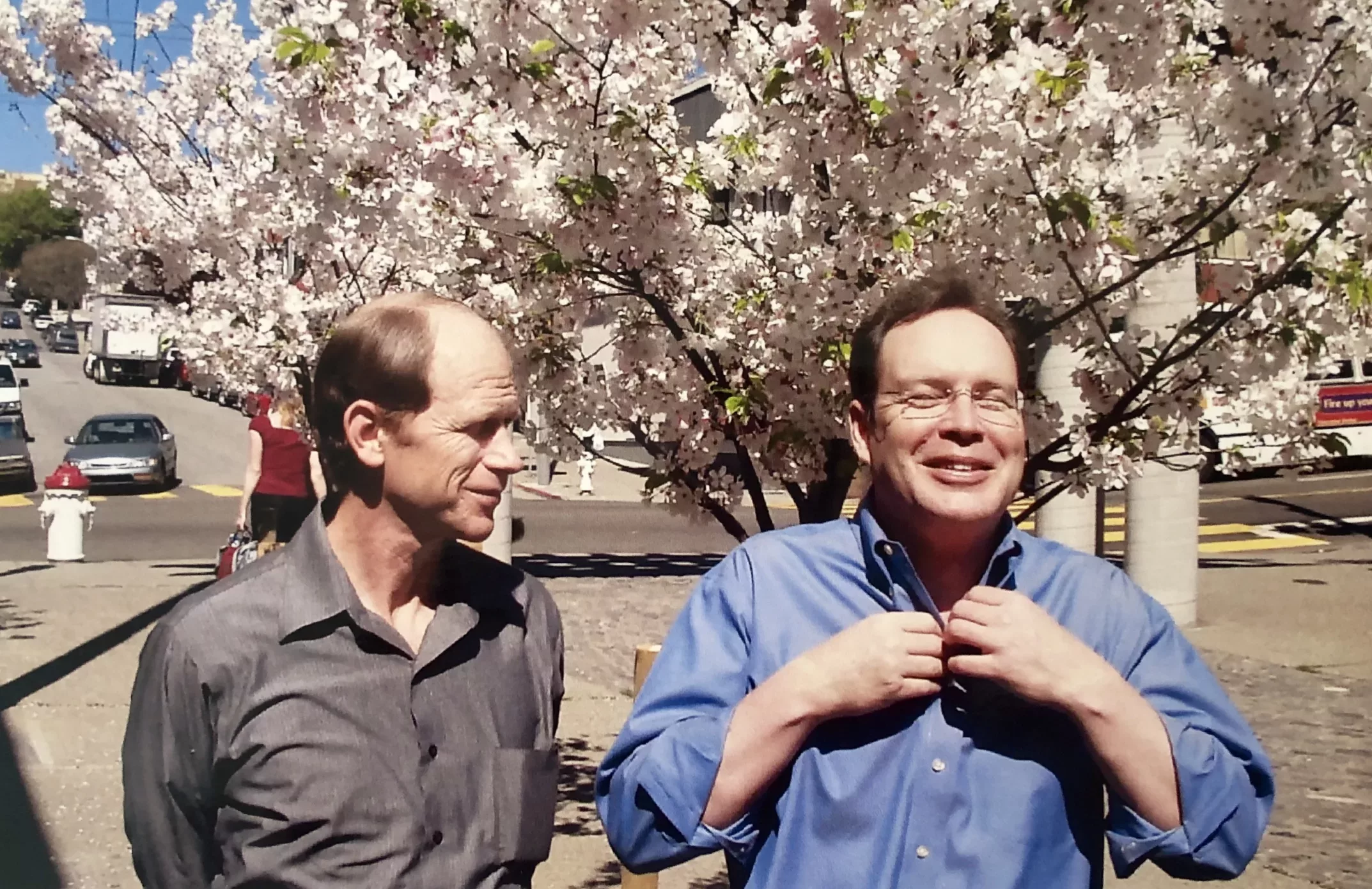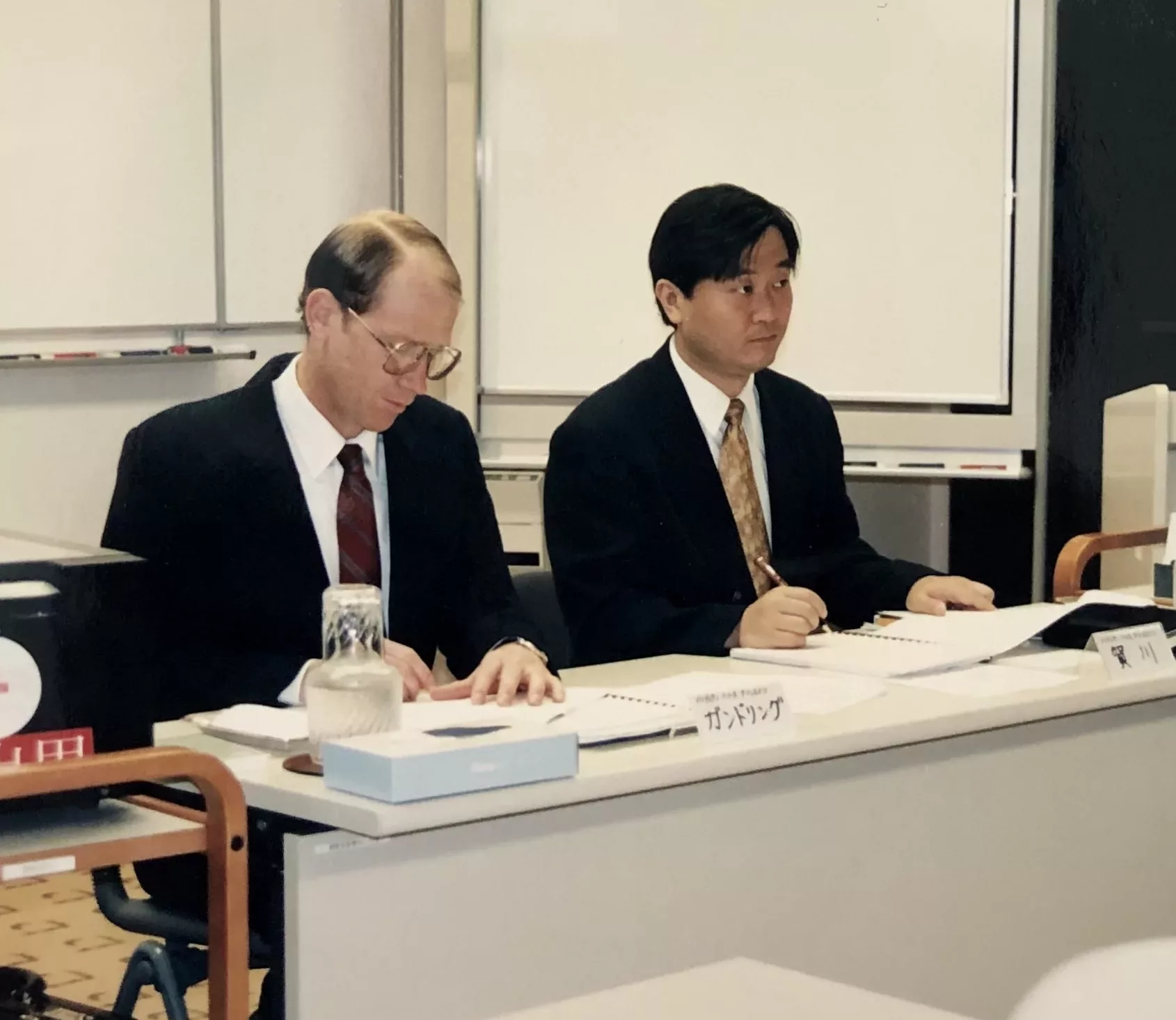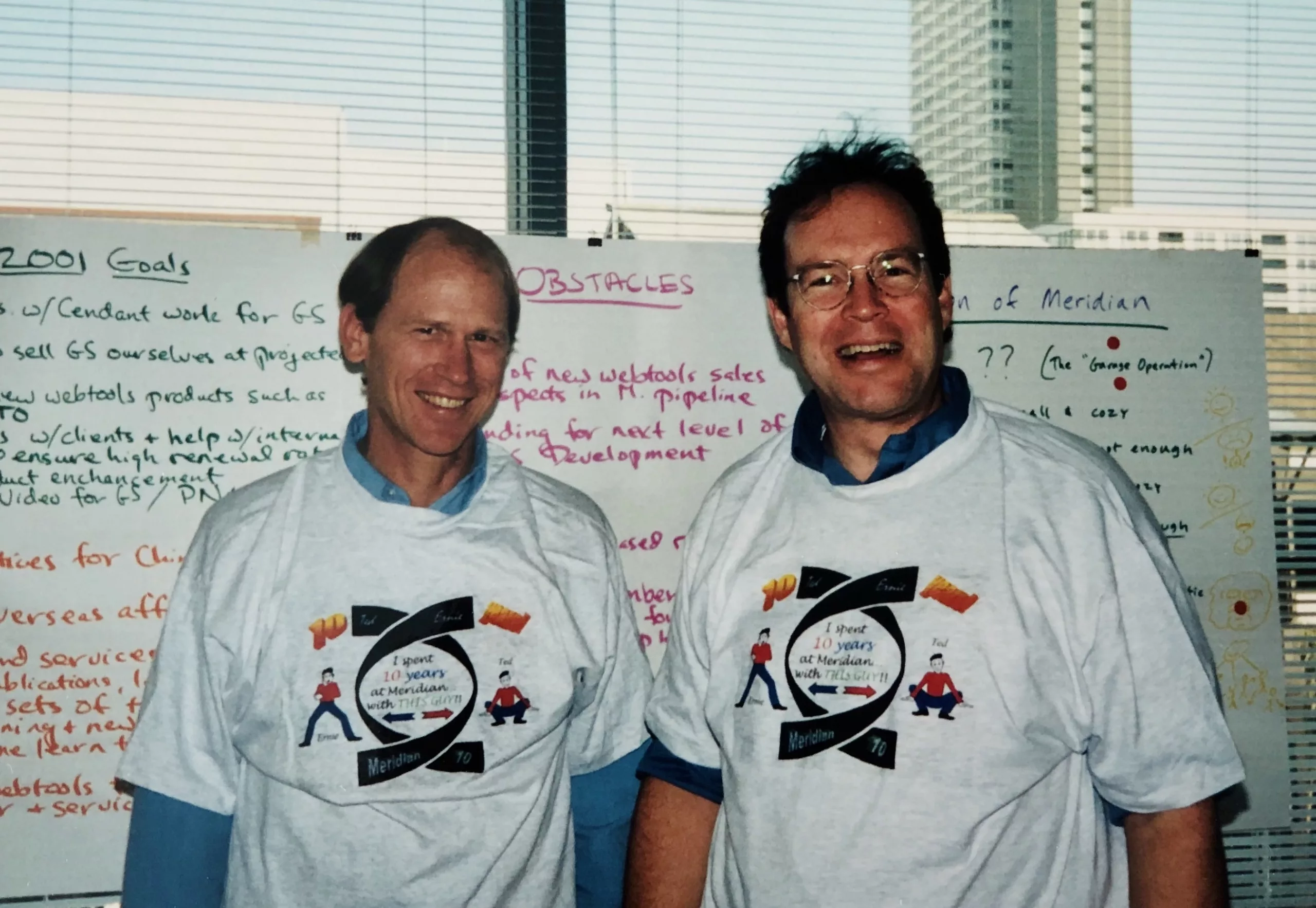


Ted Dale and Ernest Gundling may share a passport nationality (U.S. American), but it was their love for Japan that brought them together. Japan’s booming economy in the late 1980s and a lack of knowledge about Japanese culture in the U.S. became the foundation of Aperian as we know it today.
Ted had been born in Kyoto as the son of missionary parents, and experienced life in Japan as a foreigner until he set off for college in the United States.
Ernie went to Japan as a Buddhist monk, a student of the Japanese language, and later to conduct field research through a Fulbright Dissertation Research Fellowship.
The two of them met in 1989, and drew up plans for a business that would focus on “helping people understand and interact more effectively with people from different cultural backgrounds.”
Ted’s motivation was quite personal as he had struggled growing up between two cultures, not quite knowing where to belong. Bootstrapping his first business endeavors under the name “Intercultural Training Resources Incorporated” in 1990, he began giving seminars on “How to work with the Japanese” in Silicon Valley. He was then asked by some of his early tech clients to create video training tools with a similar focus. During this (pre-Internet) time, he was introduced to Ernie, who was working for a consulting company focused on U.S.-Japan business relations.
A video training series on Japanese culture became their first collaboration in 1991, with subsequent video series on “Working With China,” and “Working Globally.”
As the Internet became mainstream, they were approached to create an online tool that could promote their message and help organizations navigate successfully in various cultural contexts.
This was the genesis of the Aperian learning platform.

Originally called GlobeSmart®, the platform was developed in the late 1990s with the help of two Indian web developers based in Des Moines, Iowa. The original version featured information on 10 countries.
The company eventually merged with Eaton Consulting Group (ECG) in 2005 to create a truly global business platform with representatives around the globe. The name was later changed to “Aperian Global” (from the Latin word, aperire, meaning to open, to provide access to) and then years later, shortened to “Aperian”. And it is this brand identity that now promotes the mission that was originally envisioned by Ted and Ernie so many years ago.
